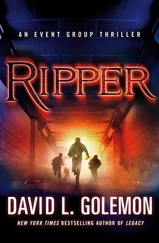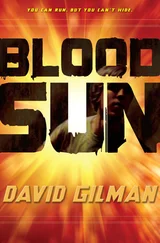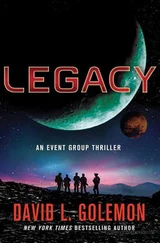David Gilman - Ice Claw
Здесь есть возможность читать онлайн «David Gilman - Ice Claw» весь текст электронной книги совершенно бесплатно (целиком полную версию без сокращений). В некоторых случаях можно слушать аудио, скачать через торрент в формате fb2 и присутствует краткое содержание. Жанр: Триллер, на английском языке. Описание произведения, (предисловие) а так же отзывы посетителей доступны на портале библиотеки ЛибКат.
- Название:Ice Claw
- Автор:
- Жанр:
- Год:неизвестен
- ISBN:нет данных
- Рейтинг книги:4 / 5. Голосов: 1
-
Избранное:Добавить в избранное
- Отзывы:
-
Ваша оценка:
- 80
- 1
- 2
- 3
- 4
- 5
Ice Claw: краткое содержание, описание и аннотация
Предлагаем к чтению аннотацию, описание, краткое содержание или предисловие (зависит от того, что написал сам автор книги «Ice Claw»). Если вы не нашли необходимую информацию о книге — напишите в комментариях, мы постараемся отыскать её.
Ice Claw — читать онлайн бесплатно полную книгу (весь текст) целиком
Ниже представлен текст книги, разбитый по страницам. Система сохранения места последней прочитанной страницы, позволяет с удобством читать онлайн бесплатно книгу «Ice Claw», без необходимости каждый раз заново искать на чём Вы остановились. Поставьте закладку, и сможете в любой момент перейти на страницу, на которой закончили чтение.
Интервал:
Закладка:
The thought of his father, alone and struggling with his own illness, stabbed at him. His dad was bigger than life. His strong, adventurous, clever dad. Max let the feeling slip away. No good dwelling on it. But he remembered his dad telling him about the Greek masters. The bloody conflicts of ancient times fascinated Max, and he’d visited battlefields with his father. It was about the time he just couldn’t settle down at Dartmoor High. So his dad told him stories. They walked in the heat of Greece, where warriors had fallen in great battles, his father explaining how the use of geometry had enabled men to build siege machines for thousands of years. It was his father’s way of helping him concentrate in class, giving him something vibrant to grasp when the subject demanded concentration rather than imagination.
Max had struggled at school. When his mum died, the shock and grief resonated through him, a silent weeping he could barely hold in. And to try and understand even the most basic elements of geometry would make his brain seize up at times. So his dad told him about Pythagoras. A Greek master mathematician, a vegetarian mystic who believed he could prove the secrets of the universe through geometry. Secrets of the universe. Now Sayid had told him that the drawing meant exactly that.
“If it’s in this book, then I reckon it’s not part of any clue,” Max said. “But maybe it tells us that Zabala was searching for something to do with astrology or astronomy and was using geometry to help him solve the puzzle.”
Max took the second piece of paper from the folder. It had a row of five numbers across and five down. And only one word, a symbol and a number were written across the top: Mars = 65.
“Mars equals sixty-five,” Max said. “What’s that supposed to mean?”
“Mars is the god of war.”
“I know that, Sayid. But he’s not sixty-five years old, is he? And he doesn’t live at number sixty-five Acacia Avenue.”
“I’m only trying to help. Keep your shirt on. I’m the bloke who helped you get through your maths exam last year, remember? Your mad monk must have put it here for a reason.”
“He wasn’t mad, I’m sure of it. He was a scientist, and he’s giving us another clue along with everything else.”
Max studied the piece of paper a moment longer, gazing at the numbers, willing his mind to make some sense of them.

“I read a book once about spies in the Second World War and they used a code system like this, but that was something to do with letters in a box, not numbers,” Max said.
“I remember that, you were going on about it for ages. And?”
“And … I dunno. I can’t remember how the system works.”
Sayid looked dismayed.
“No good pulling a face, Sayid. I told you about it as well. How come you don’t remember?”
“Because I was probably doing your maths homework at the time.”
Max touched his finger onto each square.
“There’s always a pattern with numbers. They always mean something,” Sayid said.
“Obviously,” said Max, “Otherwise they wouldn’t be here, would they? Anyway, I can tell you one thing-all these numbers, up, down, across, and diagonally add up to sixty-five. They have to be these particular numbers in this particular order to do that.”
Sayid checked. Max was right. Each column and row totaled sixty-five.
“There’s hope for you yet.”
“Well, I’m not thick, y’know. I just struggle with maths a bit,” Max huffed.
Sayid fingered the scrap of paper. “I’ve seen something like this before. It’s called a magic square,” he said.
“Magic like in abracadabra?”
“Nah, the Arabs got it from the Indians when they invaded. Seventh century or something. Then a mathematician …” Sayid lifted his head for a moment, scratching around in his memory. “Al-Buni. That was him. He got into astrological stuff in about twelve hundred and used it for-”
Max interrupted him. “Sayid, we don’t have time for a history lesson. Just tell me what a magic square is, will you? Or at least this one. ‘Mars equals sixty-five’ means something. Zabala wouldn’t have gone to all this trouble to hide something if it weren’t vital.”
“I don’t know what these numbers mean. But the sixty-five bit, at least that’s a start,” Sayid said, frowning with uncertainty.
“I suppose so,” Max said, “but a start in what direction we don’t know. Not yet, anyway. I reckon we’d better get back and study this at the comtesse’s.”
Sayid nodded, his mind also trying to make sense of the jumbled ideas entangled in his head. “Let me think about it some more,” he said, folding the paper neatly.
“OK. Numbers are what you’re good at. But we’ve got to check the observatory before we go. We won’t have another chance to come back,” Max said, tucking the drawing of the circle into his pocket and pushing the worn folder back into the shelves.
Sayid tidied the trestle table as Max carefully rethreaded the typewriter ribbon.
The observatory was on the same floor, and by the time they reached it, there was no sign of any disturbance in the library, nothing to draw suspicion of a search.
The observatory was an uncomplicated room. There was no decoration. Dark wooden floors gleamed with reflected light from two mullioned windows, one left, one right, which allowed an almost perfect rectangle of moonlight to stream in. The room was mostly bare, clearly used as a place for work, research and compilation of any findings done in the library. A Gothic arch was set in the middle of the room, flanked by old wooden bookcases displaying research-drab folders. In the arch’s alcove an old-fashioned telescope about two meters long was cantilevered on what looked like spoke wheels. It sat solidly, its barrel pointing up at about forty-five degrees. A small wooden seat on a slider was fixed to the floor beneath the whole apparatus.
“Stay away from the windows, Sayid. Just in case anyone is out there.”
Max stroked the telescope’s barrel. In the archway’s ceiling, louvered windows could be opened to access the sky.
“You lie down there,” Sayid said, pointing to the wooden seat, “then you slide under the telescope and watch the stars cross the meridian line.”
“How do you know that?”
Sayid smiled and pointed to a sign barely visible in the archway. “It says so. I’m going to have a go.” Sayid was already maneuvering himself onto the floor.
“Sayid, we don’t have time.”
“Course we do. C’mon, Max, you know all about the stars. Let’s have a look. It’s a clear night. Open those shutters up there.”
Sayid was already settling himself beneath the telescope’s eyepiece. Max jiggled with the rods that opened the arched ceiling. “The moon’s too bright, Sayid. You won’t see much.”
“Stop moaning, Max. Just do it.”
Max finally got the old louvers opened. He was afraid the whole system might collapse on them, but he stopped when he felt the opening rods getting stiff.
“That’s fine,” Sayid said, grinning. But then he grimaced as he struggled to focus the eyepiece.
Max gazed around the room. The folded paper was burning a hole in his pocket. He just wanted to get to a safe place and pore over it.
Irritation began to bite. “Sayid, give it up. C’mon, we’ve got to get out of here.”
Sayid’s eye was glued to the telescope; he shuffled himself a little forward, a little back, until he was as comfortable as he could be, waving an arm for Max to be quiet. A tinge of light moved to one side of the room. Max’s heart jumped. Something dark had shimmered. Imaginary monsters lived in these old walls. Gargoyles climbed down from their lofty perches, their claws scratching walls, their hunter’s eyes seeking prey. But it was a trick of the light, aided by Max’s imagination. Or was it? The wind, turning from the sea, snared itself across the battlements. The gargoyles’ open jaws cried out, desperate for life.
Читать дальшеИнтервал:
Закладка:
Похожие книги на «Ice Claw»
Представляем Вашему вниманию похожие книги на «Ice Claw» списком для выбора. Мы отобрали схожую по названию и смыслу литературу в надежде предоставить читателям больше вариантов отыскать новые, интересные, ещё непрочитанные произведения.
Обсуждение, отзывы о книге «Ice Claw» и просто собственные мнения читателей. Оставьте ваши комментарии, напишите, что Вы думаете о произведении, его смысле или главных героях. Укажите что конкретно понравилось, а что нет, и почему Вы так считаете.











